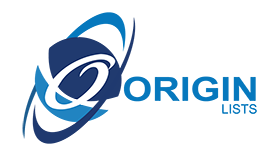10 Strategies to Sell Your Medical Supplies to Hospitals
In today’s healthcare landscape, there is a need for a significant supply of medical facilities with essential equipment. Hospitals rely on a steady stream of medical supplies to function efficiently and provide optimal care to patients. As the demand for healthcare services continues to rise, so does the need for medical equipment. This growing demand has led to a fiercely competitive industry where suppliers vie for contracts with hospitals and healthcare institutions.
The following blog article shows you 10 strategies to sell your medical supplies to hospitals. Ensuring hospitals have access to quality health supplies is vital for maintaining the standard of care and saving lives. From basic consumables like gloves and syringes to complex machinery such as MRI scanners and ventilators, every piece of equipment plays a crucial role in patient diagnosis, treatment, and recovery.
10 Ways to Sell Your Health Supplies to Hospitals
- Understand Hospital Needs
Understanding the unique requirements of hospitals is paramount for effective supply management. Researching the specific needs of your target hospitals allows for tailored solutions to be offered. Identify the medical supplies that are in high demand and those that may be lacking in their inventory. This insight enables you to position your products as solutions to their existing challenges.
Equally important is comprehending the decision-making hierarchy within hospital administration. Knowing who holds the authority to approve purchases and make procurement decisions is key. This insight guides your approach to presenting your products effectively to decision-makers. Whether it’s the purchasing department, medical directors, or financial executives, understanding their roles and priorities streamlines the sales process.
- Offer High-Quality Products
When it comes to medical supplies, hospitals hold quality in the highest regard. Patient safety and regulatory compliance are paramount concerns, making it imperative for suppliers to deliver products that meet rigorous standards. By ensuring that your health supplies adhere to these standards, you not only gain the trust of healthcare providers but also contribute to the well-being of patients.
Moreover, it’s essential to recognize and address the pain points faced by hospitals. Whether it’s streamlining inventory management, reducing costs, or enhancing patient care, offering tailored solutions can make all the difference. By understanding and addressing these challenges, suppliers can establish themselves as reliable partners in healthcare delivery.
To truly stand out in the market, suppliers should offer value-added services and products that go beyond the basics. This could include specialized training programs, innovative equipment with advanced features, or customized supply chain solutions. By providing these additional benefits, suppliers not only differentiate themselves but also contribute to the efficiency and effectiveness of hospital operations.
- Competitive Pricing
When catering to hospital buyers, it’s crucial to strike a balance between competitive pricing and emphasizing the value your supplies bring to the table. While offering competitive prices is important, it’s equally essential to highlight the long-term benefits and cost savings that come with your products. This could include emphasizing their durability, multi-use functionality, or any other features that contribute to cost-effectiveness over time.
Structuring discounts and incentives strategically can be a powerful way to attract hospital buyers. Consider offering volume discounts for large orders, bundle deals on related products, or loyalty rewards for repeat purchases. Additionally, providing flexible payment options or extended payment terms can make your offerings more appealing to hospital procurement teams.
- Building Relationships with Hospital Decision Makers
Building strong relationships with hospital decision-makers is paramount in the competitive landscape of medical supply. These key individuals hold the power to influence procurement decisions, making them invaluable allies for suppliers. Networking serves as the cornerstone for establishing these vital connections. Attending industry events, joining professional organizations, and leveraging social media platforms like LinkedIn, Twitter, and many more are effective strategies for initiating contact.
Once the connection is made, maintaining a professional relationship is crucial. Regular communication, personalized interactions, and demonstrating value through product knowledge and reliability are essential. Building trust is a gradual process that requires consistent effort and transparency. Suppliers who invest in nurturing these relationships often reap long-term benefits, including increased sales opportunities and enhanced reputation within the medical field.
- Customize Your Pitch
When selling to hospitals, one size does not fit all. To maximize your chances of success, customize your pitch to address the specific challenges and goals of each institution. Highlight how your products can uniquely solve their problems or enhance their operations. For instance, if a hospital is struggling with outdated equipment, emphasize how your state-of-the-art devices or products can streamline processes and improve patient care.
Personalization is key in sales communication. Take the time to research each hospital’s background, current initiatives, and pain points. Tailor your message accordingly, showing genuine understanding and interest. Whether it’s addressing a pressing need for cost reduction or enhancing patient satisfaction, your tailored approach will resonate more deeply.
- Use Data and Case Studies
In the competitive landscape of supply procurement, substantiating your offerings with concrete data and case studies is paramount. This evidential support not only strengthens your pitches but also instills confidence in potential clients regarding the efficacy and cost-efficiency of your supplies. Data serves as the backbone of your pitch, offering quantifiable evidence of your product’s performance. Whether it’s showcasing increased productivity, reduced downtime, or cost savings, numbers paint a compelling picture of success.
Moreover, case studies provide tangible examples of how your supplies have made a difference in real-world scenarios. By highlighting specific challenges faced by clients and detailing how your solutions addressed these issues effectively, you establish credibility and trust. By incorporating both data and case studies into your pitches, you not only differentiate yourself from competitors but also provide invaluable insights that resonate with prospective buyers. This evidence-based approach positions your supplies as the optimal choice for meeting their needs and achieving their objectives.
- Offer Flexible Ordering Options
The hospitals have diverse needs that require customized solutions. By offering flexible ordering options, suppliers can seamlessly adapt to these requirements. Bulk purchases enable hospitals to stock up on essential supplies, ensuring uninterrupted operations. Subscriptions provide convenience by automating regular orders and reducing administrative burdens. Moreover, customizable healthcare supply packages empower hospitals to select specific items according to their unique demands, promoting efficiency and cost-effectiveness.
Implementing these options requires understanding the intricacies of each hospital’s operations and collaborating closely to deliver tailored solutions. Whether it’s ensuring a steady flow of consumables or catering to specialized departments, flexibility is key. By offering such versatility, suppliers can establish themselves as trusted partners in the healthcare ecosystem, contributing to the seamless delivery of patient care.
- Leveraging Technology and Innovation
Leveraging technology is paramount for streamlining sales processes and enhancing product offerings. By embracing innovative tools and techniques, healthcare sales teams can effectively engage with hospital clients, leading to mutually beneficial partnerships. From advanced CRM systems to (Artificial Intelligence)AI-driven analytics platforms, technology offers a plethora of solutions to optimize sales workflows. These tools enable sales representatives to track leads, manage customer interactions, and analyze market trends with unparalleled efficiency.
Moreover, innovative techniques such as virtual product demonstrations and interactive presentations captivate hospital clients, fostering meaningful connections and driving sales growth. By harnessing the power of technology and innovation, healthcare sales professionals can navigate the evolving landscape with confidence, delivering value-driven solutions that meet the unique needs of hospital clients.
- Providing Exceptional Customer Service
Exceptional customer service goes beyond the initial sale, in the medical field, it’s about ensuring satisfaction long after the transaction. Hospitals rely not only on top-notch products but also on continuous support to meet evolving needs. By prioritizing post-sale assistance, healthcare suppliers demonstrate a commitment to their client’s success and well-being.
To exceed expectations and cultivate lasting relationships with hospital decision-makers and buyers, proactive engagement is key. This involves anticipating needs, providing timely solutions, and offering personalized support. By actively listening to customer feedback and addressing concerns promptly, suppliers can enhance trust and loyalty.
- Monitoring and Adapting Strategies
For medical supply companies, monitoring and adapting strategies are crucial for sustained success. Tracking sales metrics and analyzing performance plays a pivotal role in understanding market trends and customer preferences. This data-driven approach empowers companies to make informed decisions and stay ahead of the curve.
Staying agile is paramount in an ever-evolving industry. By remaining vigilant of health and hospital market trends, companies can proactively adjust their strategies to meet changing demands. Moreover, soliciting feedback from customers provides invaluable insights into areas for improvement and innovation.
Tips for effectively monitoring and adapting strategies:
1. Regularly assess sales metrics to identify patterns and areas for improvement.
2. Stay informed about market trends and competitors: activities.
3. Actively seek feedback from customers and stakeholders to refine offerings.
4. Be prepared to pivot strategies based on evolving market dynamics.
By embracing a proactive approach to monitoring and adapting strategies, medical supply companies can navigate challenges and capitalize on opportunities for growth and innovation.
Conclusion:
In the competitive landscape of medical supply sales to hospitals, it’s evident that success hinges on understanding hospital needs, offering high-quality products, competitive pricing, and building strong relationships with decision-makers. Customizing pitches, leveraging data and technology, providing exceptional customer service, and continuously monitoring and adapting strategies are key to sustaining growth and innovation in this dynamic industry.
By implementing these strategies, medical supply companies can establish themselves as trusted partners in healthcare delivery, contributing to the efficiency and effectiveness of hospital operations while ensuring patient safety and satisfaction. Moreover, to effortlessly sell your health devices, equipment, and clinical supplies, you need detailed information about hospitals or decision-makers. That’s where OriginLists comes into the scene by offering a verified and highly responsive hospital email list to reach out to the top-ranking hospitals and their key players and purchasing officers to reach and improve your sales and business opportunities.
<script type="application/ld+json">
{
"@context": "https://schema.org/",
"@type": "Article",
"mainEntityOfPage": {
"@type": "WebPage",
"@id": "https://originlists.com/strategies-for-selling-medical-supplies-to-hospitals/"
},
"headline": " Top 10 Strategies for Selling Medical Supplies to Hospitals",
"description": "Find out the top strategies for effectively selling your medical supplies to hospitals and succeeding in the dynamic healthcare market. Read more!",
"author": {
"@type": "Organization",
"name": "OriginLists",
"url": "https://www.originlists.com/",
"image": {
"@type": "ImageObject",
"url": "https://originlists.com/wp-content/uploads/2023/09/OL-Logo.png",
"width": "80.47",
"height": "44.98"
}
},
"datePublished": "2024-03-05 T06:00:00+08:00",
"dateModified": "2024-14-07 T07:00:00+04:00"
}
</script> 

